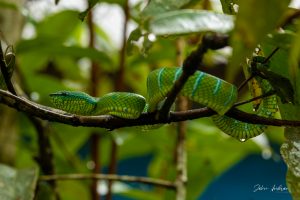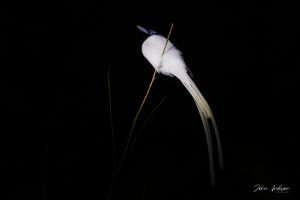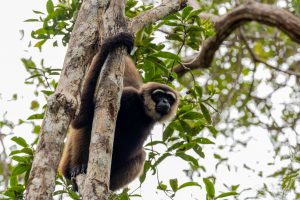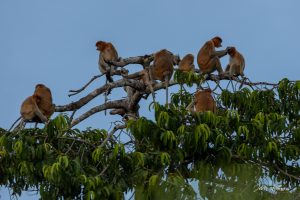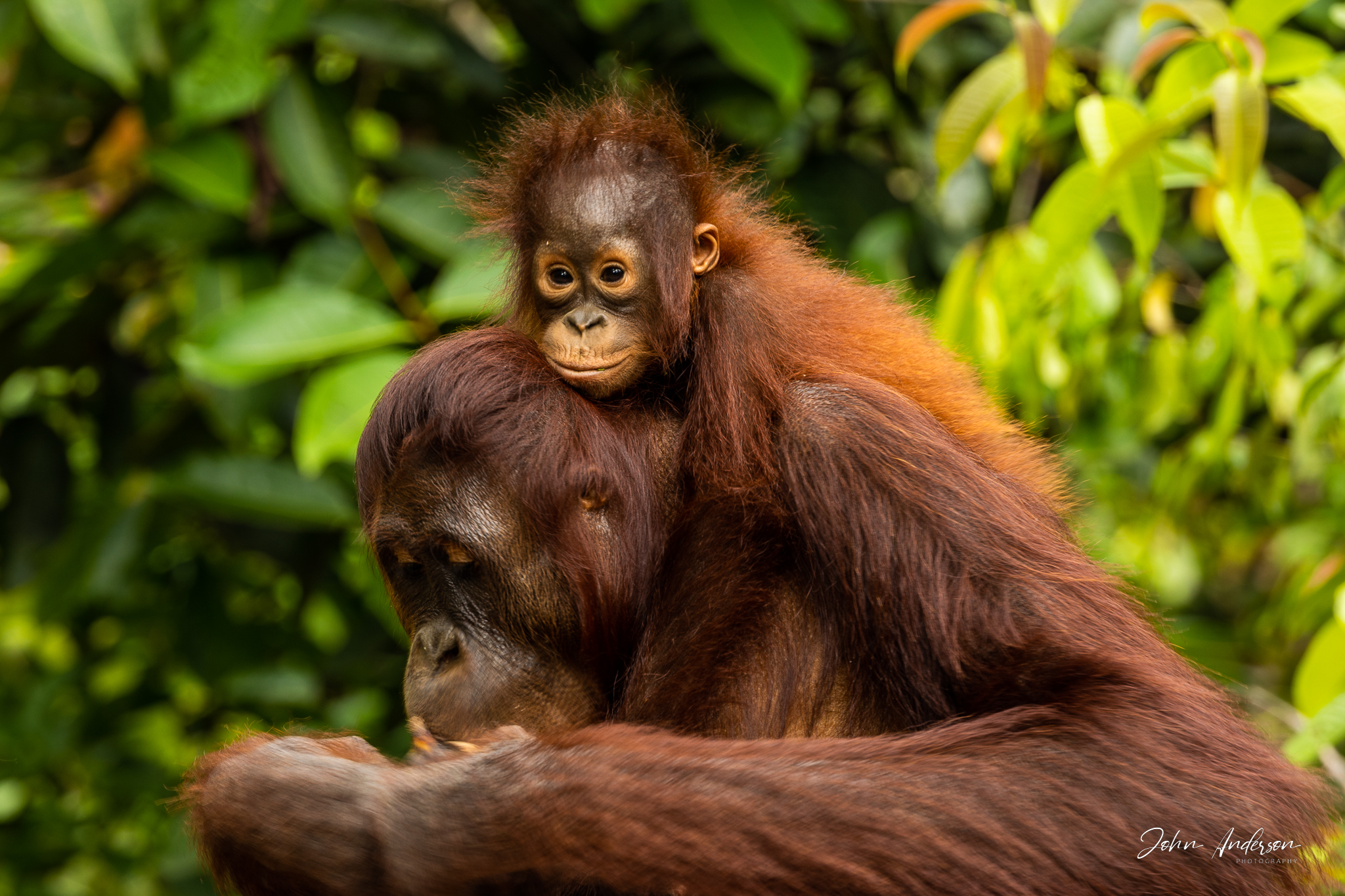
Kalimantan and the Orangutans – 28th Jan to 1st Feb 2023
Back to the Forests of Kalimantan to spend some quality time with the Orangutans.
After 3 years and a global pandemic, it was exciting to get back into the forests to meet good friends and see how the environment and the animals have fared over the past three years. Kalimantan, Central Kalimantan to be specific is a province Indonesia on the island of Borneo. Kalimantan was largely ruled by Sultans until the Dutch colonised the entire island of Borneo. Holding power until the second world war where the Japanese invaded and held power to the end of the war. The Dutch attempted to regain power, but Indonesia gained independence in 1949. In 1950 the Sultan of the Pangkalan Bun (and surrounding area) requested to become part of Indonesia. The Sultanate is still ongoing and is largely ceremonial these days. The Sultans home is worth a visit. Most people in the region are Muslim and are amongst the most accommodating, happy, and gentle people you will encounter anywhere in the world.
All of Kalimantan is rich in minerals such as Bauxite, coal and others and mining plays an important part in the economics of the region. Palm oil is also a significant contributor to the region, but I am very happy to say that tourism, certainly now that the pandemic has passed, is becoming a very important part of the economy. An interesting additional contributor is the nests of the swallows that are “cultivated” in massive purpose-built buildings. The bird’s nest is a sustainable commodity and fetches as much as $1,000/kg for bird’s nest soup. This is not a staple part of the local cuisine and is exclusively for export.
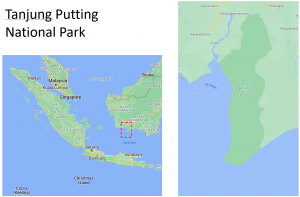
The location for this expedition was the Tanjung Puting National Park. The park was established in the 1930’s by the Dutch colonial government for the protection of the Orangutans and proboscis monkeys. The park was designated as a UNESCO Biosphere reserve in 1977 and a national park in 1982. (Wikipedia)
Travelling to Indonesia as at January 2023, all travellers ae required to be double vaccinated and complete an online health and customs clearance. Visitors are also required to acquire a visa which can be acquired at the airport at a cost of IDR500,000 (Approx A$50.00).
Airport accommodation is inexpensive if you are flying out early the next morning and ranges from about IDR300,000 (A$30.00) for a very comfortable and clean capsule up to about UDR1,000,000 ($100.00) at one of the nice airport hotels. Restaurants abound. Please take care on arrival as the touts are plentiful and persuasive. You done need assistance as it is easy to get around the airports on the train which runs from 6am until 9pm every 15 minutes. The city is about a 30min Grab (Jakarta Uber) ride (traffic dependant and about IDR130,000 (A$13.00) time of day also dependant. Cabs are about 2,5 times this cost.
I met the group shortly after I landed on the 27th Jan for a quiet dinner. We all stayed at the airport hotels, check that your hotel provides a shuttle if you have a very early flight. We departed Jakarta at 6:00 am on the 28th for the 50 min flight to Pangkalan Bun on NAM air. On arrival we were met by our guide, Hakim, who arranged for transport to the port of Kumai where we boarded our Klotok. Breakfast was provided while Hakim stocked up on local fruit for our adventure.
Departing Kumai, we motored down the river, looking out for the extremely rare Irrawaddy dolphins. We were not so lucky. On reaching the national park we turned into the Sekonyer River. As soon as we got here I knew I was in my happy place again and the lookout for Orangutans and all other animals started. It was not long before we saw some of the exotic birds and monkeys as we cruised up the river.
Arriving about an hour later at the Rumba Eco Lodge, we were met by the friendly staff with warm face cloths and fruit juice. This was to be home for the next 3 nights. We have the privilege of sleeping on the Klotok in the forest one night which is a must do. After checking in and settling into our rooms, we headed back to the Klotok and off toward the first feeding station. There are four feeding stations in the park. These are established to supplement the food for the Orangutans. As all the Orangutans live completely free in the park, we may see a number of Orangutans or none at all. The first afternoon we were treated with about 15 Orangutans, starting with a massive male and followed in order of hierarchy the females with babies.
Over the next four days, we travelled the river visiting the other feeding stations, and sites where we conducted walks in the forest of varying distances including a 2-3 hour night walk which was fascinating. Visiting Camp Leaky is always a treat and it did not disappoint and nor did a visit to the local village where the people are so friendly.
Aside from the various walks, we saw an amazing amount of wildlife from the boat with me logging a number of new species of birds, monkeys and reptiles that I had not previously see.
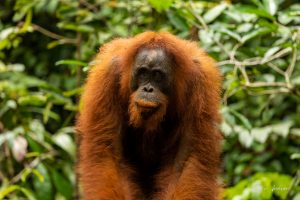
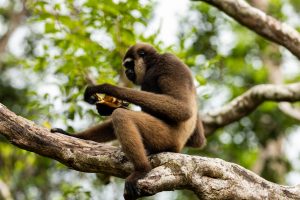
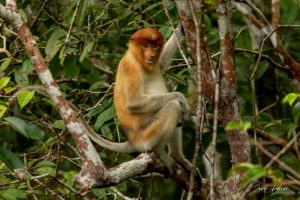
What we saw included:
Monkeys and Primates
- Orangutan (Pongo pygmaeus)
- Long tailed Macaque
- Pig tailed Macaque.
- Red Langur
- Silver Langur
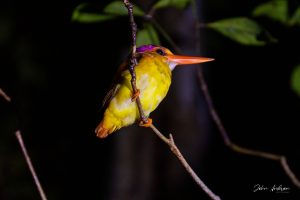
Oriental dwarf Kingfisher 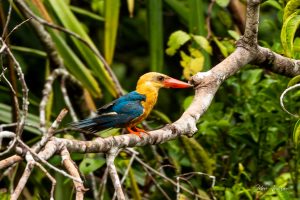
Stork billed Kingfisher 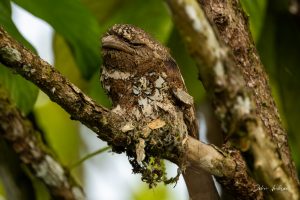
Blyth’s Frogmouth - White bearded Gibbon
- Proboscis Monkey
Birds
- Asian Paradise flycatcher
- Bushy crested Hornbill
- Garnett Pitta
- Oriental dwarf Kingfisher
- Stork billed Kingfisher.
- Storm Stork
- Crimson winged Woodpecker
- Greater Coucal
- Changeable Hawk Eagle
- Blyth’s Frogmouth
Other
- Bornean Keeled Pit Viper
- Bornean black Tarantula
- False Vampire bat
- Cave millipede
- Large headed shrub lizard
- Stick insects galore.
- Giant forest ant 2-4 cm in length
- Black eared Pygmy Squirrel
- Saltwater Crocodile
- Malaysian False Gahrial (freshwater Croc)
On the return journey, we spent half a day in Pangkalan Bun where are visited the Sultans palace. An amazing wooden building and worth spending the time.
The trip was fully inclusive of all meals and the cuisine is generally traditional Indonesian/Malaysian. All extremely delicious and consisted of protein such as Chicken, fish and tofu usually served with rice and plenty of vegetable and rice. Fruit is abundant and some of the forest fruit is delicious e.g. Mango Steen and Snakeskin fruit. Both are a must have on our next trip. As Indonesia is a Muslim country, Alcohol is generally not available but can be attained by foreign tourists is required. This does need to be pre-arranged.
My absolute highlight of the trip was the health of the forest. Life was abundant and every single female Orangutan of age had a baby with her. It was just so nice to see.
Join us on the next trip, starting on 27th Jan 2024.
